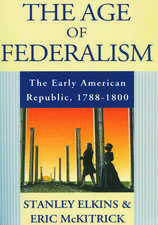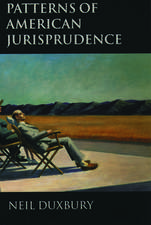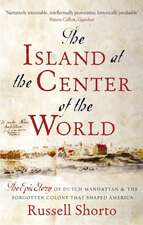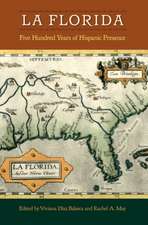The Ideological Origins of the Dirty War: Fascism, Populism, and Dictatorship in Twentieth Century Argentina
Autor Federico Finchelsteinen Limba Engleză Paperback – 16 feb 2017
| Toate formatele și edițiile | Preț | Express |
|---|---|---|
| Paperback (1) | 238.13 lei 10-16 zile | |
| Oxford University Press – 16 feb 2017 | 238.13 lei 10-16 zile | |
| Hardback (1) | 497.85 lei 31-37 zile | |
| Oxford University Press – 5 iun 2014 | 497.85 lei 31-37 zile |
Preț: 238.13 lei
Preț vechi: 270.55 lei
-12% Nou
Puncte Express: 357
Preț estimativ în valută:
45.58€ • 49.53$ • 38.31£
45.58€ • 49.53$ • 38.31£
Carte disponibilă
Livrare economică 20-26 martie
Preluare comenzi: 021 569.72.76
Specificații
ISBN-13: 9780190611767
ISBN-10: 0190611766
Pagini: 232
Dimensiuni: 155 x 231 x 15 mm
Greutate: 0.34 kg
Editura: Oxford University Press
Colecția OUP USA
Locul publicării:New York, United States
ISBN-10: 0190611766
Pagini: 232
Dimensiuni: 155 x 231 x 15 mm
Greutate: 0.34 kg
Editura: Oxford University Press
Colecția OUP USA
Locul publicării:New York, United States
Recenzii
In this masterwork written with a limpid style and an admirable conceptual clarity, Federico Finchelstein proves that, far from being merely 'imported,' fascism had deep roots in Argentina, where it appeared in the early 1930s as a peculiar symbiosis of radical nationalism and reactionary Catholicism. His book is a fundamental contribution to the historiography of transnational fascism and the origins of the 'Dirty War.'
Federico Finchelstein's new book is a persuasive account of fascism's extra-European reach. He shows the peculiarities and persistences of Argentina's strain of fascism and its enduring appeal. From a marginal intellectual movement, the cult of violence, sexualized myths, and the sacralization of political authority elevated Argentine fascists to the center of power. Along the way, Finchelstein reminds us of the monumental important of ideology, and the importance of its extremes, in modern politics.
Once again, Professor Finchelstein has given us an outstanding piece of work: tremendously erudite and well written, it penetrates to the core of fascist ideology and practice. For scholars of European history its extraordinary importance lies in shedding a new and revealing light on the process of transition from liberalism to fascism in a country that did not suffer from the catastrophe of the Great War.
Federico Finchelstein's new book is a persuasive account of fascism's extra-European reach. He shows the peculiarities and persistences of Argentina's strain of fascism and its enduring appeal. From a marginal intellectual movement, the cult of violence, sexualized myths, and the sacralization of political authority elevated Argentine fascists to the center of power. Along the way, Finchelstein reminds us of the monumental important of ideology, and the importance of its extremes, in modern politics.
Once again, Professor Finchelstein has given us an outstanding piece of work: tremendously erudite and well written, it penetrates to the core of fascist ideology and practice. For scholars of European history its extraordinary importance lies in shedding a new and revealing light on the process of transition from liberalism to fascism in a country that did not suffer from the catastrophe of the Great War.
Notă biografică
Federico Finchelstein is Associate Professor of History and Director of the Janey Program in Latin American Studies at the New School for Social Research and Eugene Lang College. He is the author of several books on fascism, the Holocaust, and Jewish history in Latin America and Europe, including Transatlantic Fascism: Ideology, Violence, and the Sacred in Argentina and Italy, 1919-1945. He contributes to major American, European, and Latin American newspapers, including the New York Times, The Guardian, International Herald Tribune, Mediapart, Clarin, and Folha de S.Paulo.















